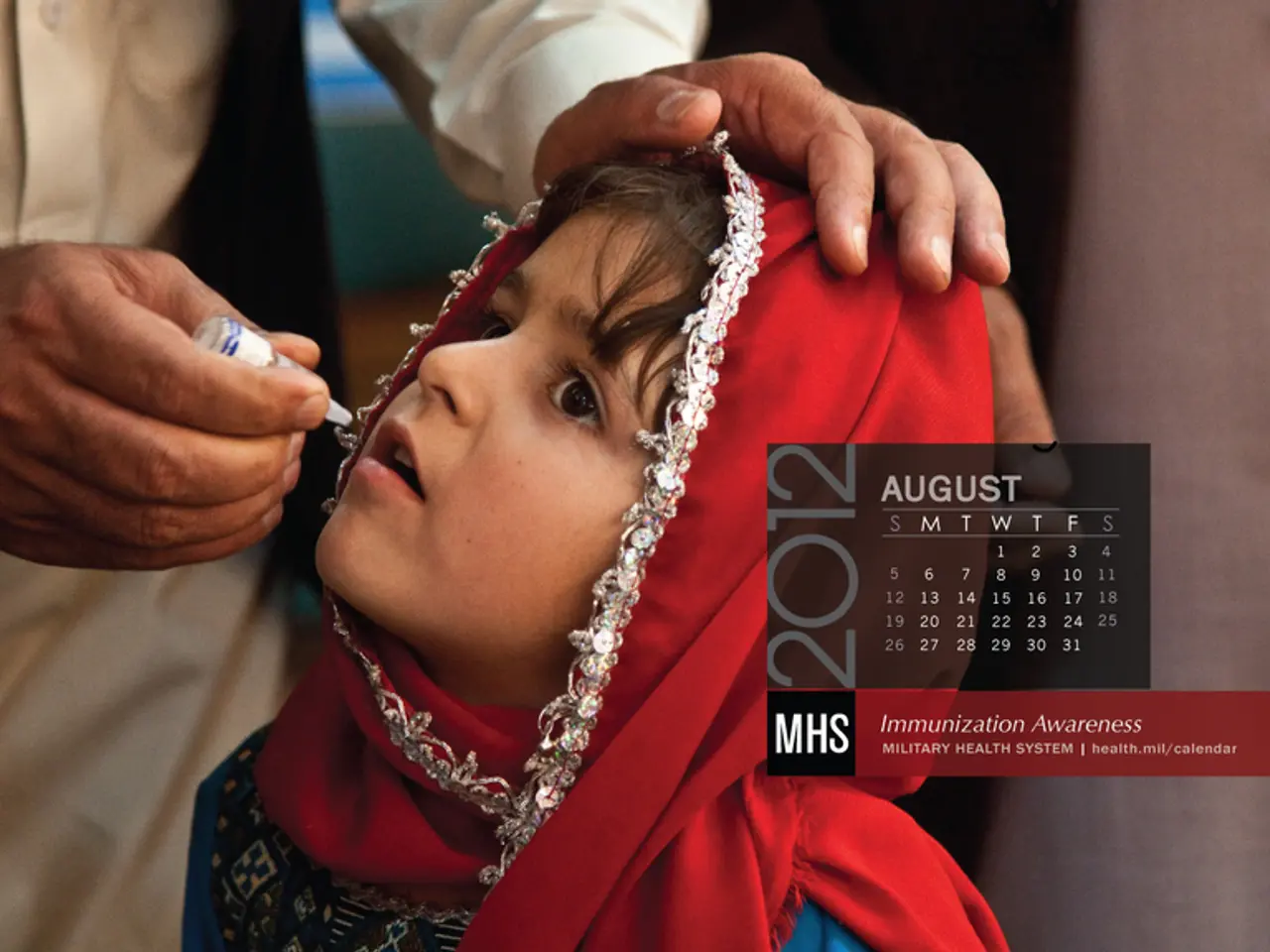Immunization with the RSV vaccine offers cardiac issue protection as well.
In the realm of public health, the connection between vaccinations and cardiovascular health is becoming increasingly evident. Recent studies and research have highlighted the significant role vaccinations play in reducing the risk of acute cardiovascular events.
The European Society of Cardiology (ESC) has recently acknowledged this connection, considering vaccinations as the "fourth pillar of cardiovascular prevention." This recognition underscores the importance of vaccinations in maintaining heart health, particularly among the elderly.
One of the most significant findings comes from a study analysing data from 7,771 patients treated in 164 Chinese hospitals for heart failure. The study, published in the Journal of the American Medical Association, found that vaccinated individuals had a 30 percent lower risk of acute severe cardiovascular events compared to unvaccinated individuals.
Influenza, in particular, has been identified as a potential threat to heart health. A new study on influenza vaccination was presented at the cardiology congress in Madrid, with results published simultaneously in "The Lancet." The research revealed that vaccination reduces mortality by a relative 45 percent.
Moreover, among patients treated for acute myocardial infarction, vaccination has been found to reduce cardiovascular mortality by up to 41 percent.
The Austrian Presse Agentur eG, the largest national news and press agency in Austria, has also reported on the benefits of vaccinations. In a study on RSV vaccination, published in the Journal of the American Medical Association, the vaccination was found to protect adults aged 60 and above against acute cardiovascular and respiratory problems. The study reported a 17% reduction in readmissions and deaths from all causes in the vaccinated group compared to the control group.
Another study, published in August 2025, showed that in adults over 60 years, the hospitalization rate for RSV infection was significantly reduced by the adjuvanted RSV vaccine Arexvy, which contains the AS01E adjuvant to boost immune response.
The connection between viral infections and heart problems is not limited to influenza and RSV. A link between viral infections and heart problems was found in the sexually transmitted human papillomavirus (HPV), with an HPV infection associated with a fourfold increased risk of cardiovascular diseases based on atherosclerosis and stroke. However, the risk increase from HPV could be offset by vaccination, although this has only been proven in women so far.
Bacterial and viral infections can pose an additional significant risk to the elderly, especially those already suffering from chronic cardiovascular diseases. In light of this, vaccinations against shingles (herpes zoster) and pneumococci are expected to be provided free of charge for people aged 60 and over in Austria in the near future. Herpes zoster has also been linked to cardiovascular complications and was associated with a 50% reduction in the frequency of such acute illnesses in a study.
In conclusion, the evidence is clear: vaccinations play a crucial role in maintaining cardiovascular health, particularly among the elderly. As research continues to unveil the benefits of vaccinations, it is essential to encourage vaccination uptake to reduce the risk of acute cardiovascular events and improve overall public health.
Read also:
- Peptide YY (PYY): Exploring its Role in Appetite Suppression, Intestinal Health, and Cognitive Links
- Toddler Health: Rotavirus Signs, Origins, and Potential Complications
- Digestive issues and heart discomfort: Root causes and associated health conditions
- House Infernos: Deadly Hazards Surpassing the Flames








